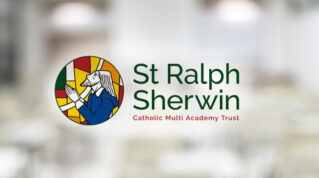Academy trusts will be expected to support flexible working, operate collaboratively and “take action to promote equality and diversity”, under new quality descriptors drawn up by government.
Last year’s schools white paper proposed a formal definition of trust strength based around five “pillars”, which ministers said would help assess their “potential for growth”.
The Department for Education has now published more detail on these proposed descriptions.
The pillars are:
- High-quality and inclusive leadership
- School improvement
- Workforce
- Finance and operations
- Governance and leadership
Ministers said they “represent a clear and ambitious vision for the academies sector”.
The DfE hopes the guidance will help to “inform trusts’ improvement and capacity-building priorities”.
However, the government has “avoided” stating how chains should achieve these goals as it has instead opted to place the onus on the “sector to identify the most effective approaches”.
The descriptions also “define the types of quality factors” that regional directors “can consider” when making decisions about moving schools between trusts.
But directors will not make “summative judgements about the quality of individual trusts”, the government said.
“Commissioning is about identifying the right trust to manage a school in its context, or the best trust to grow or expand within an area. Not every aspect of the descriptions will, therefore, be relevant to every decision.”
The proposals are part of ministers’ response to their regulatory and commissioning review, which was launched last summer to “future proof” the role of academy trusts.
Here’s what you need to know…
1. High-quality and inclusive leadership
Nine themes – culture, curriculum, student outcomes, accessible to all, inclusive pastoral support, enrichment, behaviour and attendance, destinations and collaboration – have been listed under the first pillar.
The DfE said trusts should support pupils “to re-join mainstream education when they have spent time in alternative provision”.
Trusts would also be expected to ensure all their youngsters leave “well prepared for the next stage of education, employment or training and prepared to become confident citizens”.
The plans stated trusts should “work collaboratively” with schools, other chains, councils, dioceses, parents and other civic partners to “act in the wider interests of the local community”.
2. School improvement
Trusts would be expected to “create a culture of continuous improvement in schools through self-evaluation, challenge, support and appropriate action”.
Officials noted that improvement models should also be used to maintain the performance of institutions “that are already part of the chain, as well as those that join”.
Strong trusts would also be expected to have a track record of transforming previously underperforming primaries and secondaries.
3. Workforce
Ministers urged trusts to foster a “supportive working environment by managing workload, prioritising wellbeing and taking action to support all staff”.
They want them to retain “great” employees, create “high-performing cultures” and contribute to the “wider system by delivering training and/or placements” for inexperienced teachers.
The promotion of “inclusive working environments that support flexible working and take action to promote equality and diversity” will also be expected.
4. Finance and operations
To set a “stable, accurate and sustainable long-term strong financial strategy”, the government said trusts should use “data, intelligence, effective budgeting and risk management”.
Organisations would be told to invest in their capital infrastructure and operate a “well-planned reserves policy that provides sufficient contingency for cashflow and any urgent expenditure”.
The papers also recommended cultures “recognising the importance of effective and efficient use of resources” for inclusion in the guidance.
5. Governance and leadership
The documents stated trust accounting officers, boards and leadership teams “[should] create a culture of ethical leadership, including the seven principles of public life”.
Meanwhile, members would be charged with “ensuring the board is made up of trustees with the necessary expertise to fulfill its functions effectively, and that it acts in accordance with the chain’s charitable objects”.
What’s next?
Officials stressed the guidance has been published in draft form.
They will “work with the sector to make any refinements, before finalising them alongside commissioning guidance in June”.
















You misquoated the first pillar. It’s not “High-quality and inclusive leadership” it’s “High quality and Inclusive Education”